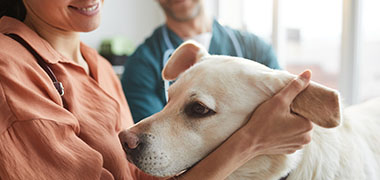
This role has a moderate level of AI exposure. AI can enhance efficiency for some tasks, but this job still relies on human skills and decision-making.
Explore all careersA Wildlife Rehabilitator cares for injured or orphaned wildlife, providing medical treatment and rehabilitation to prepare them for release into their habitats.
Get qualified to work as a Wildlife Rehabilitator with a course recognised across Australia. Speak to a training provider to learn more.



Browse occupations related to Wildlife Rehabilitator



If you have a passion for wildlife and an ambition to make a difference, consider enrolling in the Wildlife Rehabilitator courses in Hobart. This vibrant city, known for its stunning natural landscapes and biodiversity, offers individuals the unique opportunity to gain essential skills and knowledge needed to support sick, injured, or orphaned animals. With only one course currently available, the Certificate III in Wildlife and Exhibited Animal Care ACM30321 provides a solid foundation for those looking to break into the wildlife care industry.
The Certificate III in Wildlife and Exhibited Animal Care not only equips students with practical skills but also covers essential theoretical knowledge required for successful wildlife rehabilitation in Tasmania. This beginner course is ideal for individuals without prior experience or qualifications who are eager to learn. Through this qualification, aspiring wildlife rehabilitators will gain insights into animal behaviour, health care, and proper handling techniques, making it a valuable stepping stone for a rewarding career. For more details, visit the course page here: Certificate III in Wildlife and Exhibited Animal Care ACM30321.
Hobart is home to a variety of unique wildlife, and engaging in Wildlife Rehabilitator courses in this area provides significant context for students. The course offers a comprehensive overview of the specific challenges faced by local species, understanding their habitats, and addressing the pressing issues related to wildlife conservation. This education empowers learners to contribute effectively to local wildlife preservation efforts while enriching their personal experience in the breathtaking natural surroundings of Tasmania.
With the Wildlife Rehabilitator courses in Hobart, individuals are encouraged to embark on a fulfilling journey that not only enhances their professional capabilities but also furthers the cause of wildlife welfare in their community. Those interested in this course can find more information about career opportunities and pathways in the field of wildlife rehabilitation by visiting the dedicated page at Wildlife Rehabilitator Courses in Hobart. Take the first step today and help make a meaningful impact on Tasmania's wildlife.